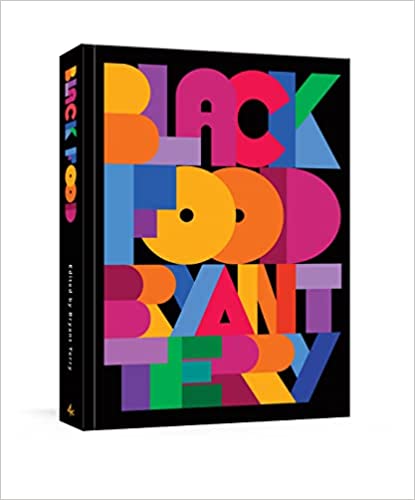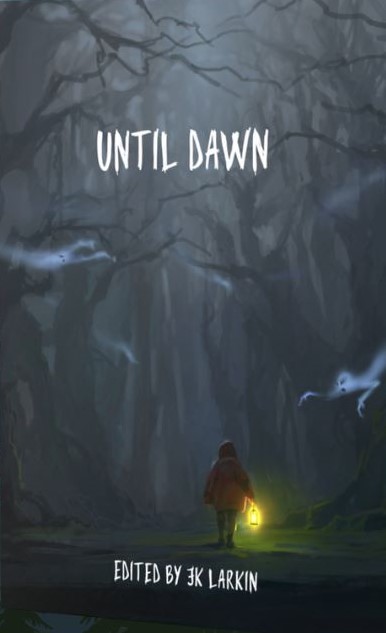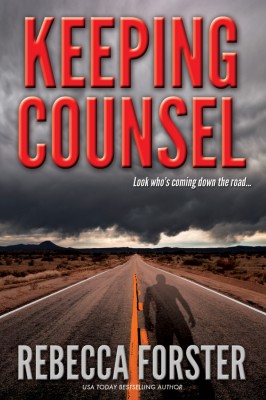What Inspires And Influences My Writing?
February 12, 2025 by Denise M. Colby in category The Writing Journey by Denise Colby tagged as Denise M. Colby, Influences, inspiration, writers lifeI recently presented on the topic of being a published author to a group of high-schoolers at a career day event. Asked where my inspiration for my writing comes from, I didn’t have a clear-cut answer. And that made me realize I needed to pay attention to what inspires and influences my writing.
What I did tell them was read. Read, read, read. And read in the genre that you want to write in.
And that part is true.
When I read a story that I absolutely love, I’m encouraged to write a story that I would love.
At least that is what I’m finding as I’m on deadline for book number three. Since I haven’t been reading as much, I believe that is impacting my motivation. And so I went back to one of my favorite authors and started her new series, which has been in my TBR pile for a while now. I’m finding it helping to give me inspiration as I write.
What am I reading? Karen Witemeyer’s Ever After Series



But back to the original question from the high-schoolers. What inspires and influences what I write? What else could I have said to pass on inspiration to this younger generation of writers?
I think it’s going to take some time to fully create a concise answer, but I have a clearer idea now.
What inspires me to write the genre I’ve chosen?
I write historical romance. I love to read this genre, too. But where did that love of this genre come from? Why did I decide to include a one-room schoolhouse (I do know this one – and I wrote a blog about it titled: It’s the One-Room Schoolhouse’s Fault).
But other than that I haven’t thought about this at all, really, it’s just what I enjoy.
And I’ve always been fascinated with history. I have a long, rich family history in my home town, that I love to research. My great, great, great grandfather was a mountain man (imagine finding a mention of him in Misty M. Beller’s book The Lady and the Mountain Man. Which I wrote about in another blog post called Finding Family Mentioned in A Novel.
Anyway, as you can see, many of these things have shaped my writing. And then I was in the check-out line at CVS this past weekend. And I bought this.

The influence of my childhood favorites in my writing
I had a review mention that my stories had a Little House on the Prairie vibe to it.
There was a good reason.
I grew up watching this show and reading the Little House books (I’ve read them all). Those and Janette Oke’s Love Comes Softly and When Calls the Heart Series have inspired and influenced my writing even though I didn’t really realize it until recently. (interesting note: all had one-room schoolhouse’s in them).



So before I started writing this post, I brewed some tea and started to read through the magazine. I’m not even a few pages in and multiple thoughts are popping up in my brain. There’s a difference between real life and fiction. Actors and their experiences versus what their characters express in a story (move, tv, theater, book). Which is sort of what reading a book does. Escape into a different reality.
As a young girl, I had no idea about what an actor was. And it didn’t matter to me. I grew up watching Melissa Gilbert play Laura. I grew up seeing Laura as a girl near the same age as me experiencing all the emotions life brings out of us. And watching her pa encourage her, and have faith in her. Which encouraged me.
Isn’t this what our stories are about? Writing worlds and characters our readers can relate to and enjoy and want to be friends with. A chance to be encouraged, inspired, and loved on when taking a break from the real world with a good book.
It’s a good reminder as I finish this post and jump back to the next scene in my manuscript.
A few final thoughts on characters from stories we love
One of the things I have learned about myself is that I like to immense myself into my storyworld and feel all the feels, and write as if I’m the character I’m writing. I think this is why I love to have my characters write their own story a bit. They are real to me. Just like the characters in the books from Laura Ingalls Wilder inspire and influence my writing as well.
I’m glad I bought the magazine. I normally don’t. But I was looking for some extra encouragement and motivation. What I found was a reminder of what’s inside of me and where that came from. Now I need to figure out how to channel it to finish my story.
Do you know what inspires you and your writing?
Is there a specific book or show that resonated with you or that you pull from when you write?
Is there a genre of shows that influenced what you read and write?
My annual embarrassing high school Valentine’s Day short story by Jina Bacarr
February 11, 2025 by Jina Bacarr in category Jina’s Book Chat, Writing tagged as audio books, kissing, short story, Valentine's, Valentine's Day
Writers write what we know… even when it’s embarrassing.
Take my first kiss. High school. Drama class. Me, the shy new kid. And a snarky guy with a big ego.
Keep reading….it gets worse.
Valentine’s Day is a time for kissing.
But what if your first kiss was just plain awful?
Meet Riley Murphy. She’s a kissing virgin, waiting for the right guy to come along. Until she joins the Drama Club at Holywell High and has to kiss the class dweeb on stage in front of the whole school on Valentine’s Day.
==============================
VIRGIN KISS
Jina Bacarr
Introduction
What’s in a kiss? A kiss by any other name is—
—sweet, romantic, intimate, passionate, wet, sloppy, disgusting, probing, awful, nasty, sexy, tingly, and sometimes just plain wonderful.
But what if it’s your first kiss? And you have to pucker up in front of a live audience at your high school? What then?
Pass the Altoids, please.
The kiss-from-hell happened to me, Riley Murphy.
This is my story.
* * *
A few weeks before Valentine’s Day…
I’m the new kid at Holywell High School, a shy, skinny freshman with cinnamon-colored freckles sprinkled across my nose. Flat-chested. I’ll never be Miss Popularity with the bouncy boobs and flirty lashes.
I’m more like an olive stuck on the end of a toothpick.
Even with that dossier, I’m not a total dork. I’ve gotten pecks on the cheek and quick brushes on the lips, but I’ve yet to experience the soul-melting kisses you see in the flicks. The passionate lip-lock I’ve dreamed about, wrote about in my diary.
I’ve pined for that kiss, but it’s yet to happen to me. God knows, I’ll be in graduate school facing lifelong debt before the right pair of lips meet mine.
To overcome my shyness, my mom convinces me to try out for the Drama Club. Somehow I land the leading role in a one-act Chekhov play.Yes, Chekhov.
I play this mad, beautiful countess with passion and heart. I love it. I come alive on stage. I can do anything, be anybody, say anything, I can—
—kiss the male lead?
A gangly sophomore named Harold Brimwell with long, greasy hair and an upper lip curled in a perpetual snarl. He’s going to anoint my virgin lips with my first kiss?
Forget the Altoids. I need a stress pill.
I quit the play. They can find another dupe. Not me. I’m not going to let him use my lips for kissing practice.
Then I hear this little voice in my head telling me this is acting. Going through the motions at rehearsals and on stage don’t count on the kissing scale. I can pucker up with Harold on stage and still be a kissing virgin.
Right?
After my pep talk to myself, I sail through rehearsals, knowing my lines and ‘connecting to my character’ according to the director. He says I’m a natural, my emotions raw but real. This is amazing. Me, Riley Murphy, the kid who’s always the ‘new girl’ at school because we move around so much because of my dad’s job, found something she’s good at.
Then the trouble starts.
The director insists on method acting.We don’t rehearse the kiss. He wants a real kiss on stage, not a phony smooch.
Worse yet, we open on Valentine’s Day with a preview performance at the afternoon school assembly. Not only do I have to kiss this guy, I have to do it on the most romantic day of the year in front of the entire student body.
I dump the Altoids… along with my confidence down the toilet.
* * *
Valentine’s Day dawns rainy and cold. Perfect weather for a Russian play.
I arrive at the gym early, put on my makeup in the girls’ bathroom then, with my hands shaking, I hook up my long Victorian black lace dress borrowed from the costume department, the silk petticoats rustling around my feet. I’m way nervous, but something cool happens as I run my lines over and over, my fear slowly dissolving into a shaky confidence as I slip into my character’s skin. Humming ‘I will survive’, I check my props, my fingertips tingling as I pull on my snug dueling gloves, then twirl the dainty parasol over my head like a spinning top.
I grab the small pistol for my big dueling scene, then heave out a big breath, praying I don’t drop it and everybody laughs at me.
I save putting on my lipstick for last.
First, I gargle mint-flavored mouthwash until my lips turn green and my mouth goes numb. Next, I line my lips with Chekhovian, dark red lipstick and smack them together. Perfect. I’m ready for my lip close-up.
It’s showtime.
I’m so nervous when the lights come up, I garble my opening lines. Then I trip over my own feet and nearly crash into the backdrop. Hot tears form in my eyes, but I want this too bad to give up now. All my life, I’ve stayed in the shadows. If I fail now, I may never get the courage to try again. I ignore the smirks and catcalls and swish my long skirts around like a real countess to boost my confidence.
I can do this.
Somehow, I get my groove on and my theatre training takes over. I sail across the stage, chin up, shoulders back, my voice clear, my lines down to a T. I’m ‘in the moment’. Much to my relief, the dueling scene goes off without the pistols misfiring.
Then it’s time for…
… the kiss.
I’ll never forget the expression on Harold’s face when he takes two long strides toward me. A mixture of sadistic pleasure and baddass ‘tude comes over his face, as shiny and sweaty as his palms, freaking me out. Lower lip snarling, my co-star gives me that ‘I’ve got you now’ look all fired up in his eyes, pinning me to the wall.
My teeth chatter. My mouthwash stops working.
It’s so quiet in the high school gym you can hear the director chewing on the end of his pencil.
My heart pounds so hard I can’t get my breath on when Harold pulls me into his arms, yanking me around like I’m a dollar store rag doll and then—
—he slams his mouth onto mine.
Bile rises in my throat as he pushes my lips apart and thrusts his mushy, saliva-coated gum into my mouth, making me nauseous. I swear if my dress wasn’t hooked up so tight, I would have ralphed all over him. Before I can push him off me, he shoves his tongue down my throat, way down, nearly gagging me.
I start choking.
I can’t breathe. Oh, my God, I’m going to pass out.
No, I can’t, I won’t. I’m determined not to faint. I have to get him off me. No gum-chewing, phony-macho sophomore is going to get the best of me.
I’m an actress, I tell myself, so act!
With stars circling around in my pounding head, I pull up my strength and kick him in the shin. There.
Startled, he jerks backward, but not before he bites my lower lip.
What the—
I taste coppery blood. Fresh, oozing, smearing my perfectly-applied lipstick. I’m in shock, disbelieving. It can’t get any worse.
Can it?
It can.
Dabbing my bleeding lip with my silk sleeve, I struggle in his arms, but he holds me tight, slobbering all over me, licking my face, my throat, coating my skin with stringy gum. My ears won’t stop ringing. The audience is going crazy, yelling and shouting like they’re at a basketball game and I’m the bouncing ball.
No, no, he’s not going to take advantage of me. I worked hard to get this part, learn my lines. Practiced how to walk, how to find the core of my character. Gosh darn, this is the first time in my whole life I’ve come out of my shell and done something really special.
He’s not going to ruin it for me.
I have to do something. Fast.
The pistol.
Where is it? After the mock dueling scene, I threw the prop gun down on the round table. It has to be there, but where?
I reach out behind me, my nails catching on the lace doily… I twist my head just a little… yes, I see it. I edge the gun toward me, an inch at a time. Sweat oozes down my too-tight collar and my knees buckle, but I don’t give up.
Almost got it… there. My fingers wrap around the pearl-inlayed handle. I suck in a breath then, without losing my nerve, I jam the prop into his ribs. Hard. I yank my body with such fury, I rip the black silk sleeve right out of the armpit. It slides down my shoulder, but it doesn’t stop me.
‘Get your hands off me, you sloppy-kissing, gum-chewer!’ I yell, ignoring the script and re-writing Chekhov. ‘Or you’re getting an “F” in drama class.’
The director gasps. Loudly. But he doesn’t refute what I said.
‘Yeah, sure,’ Harold stutters, letting me go, raising up his hands and backing away. ‘Anything you say, Riley.’
‘That’s telling him!’ a girl yells from the audience.
Amy Zanderbar. His ex-girlfriend.
She’s not the only one. All the girls stand up and start chanting, ‘Go, Riley, go!’
Wow. I hit a nerve with the females sitting in the bleachers who had their share of bad kissers.
They love it.
The audience starts clapping wildly and stomping their feet and continue chanting my name. I break the fourth wall and give them a ‘V’ for Victory high sign until the chanting dies down, then my thespian instincts kick in and I get back into character, giving Chekhov his due and ending the play as he wrote it.
I’ll always remember this night when a shy freshman girl in a borrowed Victorian dress took on a snarky sophomore and became empowered to stand up for herself in front of the whole student body.
It changed my life.
* * *
Epilogue
We performed the one-act play for the next few nights without further incident, faking the kiss each time. Harold is cool, not attempting any more way-out kissing. For me, it’s strictly acting.
I’m still a virgin in lip-land.
But I’ll never forget V-Day and my experience with the gum-toting, kissing bandit. Not a bad guy, just a rotten kisser.
And in case you’re curious, next semester I do find the right pair of lips to land that first kiss.
A hottie junior. Jack Dwayne.
When Jack takes me in his arms and lowers his face to mine, I quiver with anticipation and soon discover a kiss isn’t just a kiss, it’s…
… magic.
Happy Valentine’s Day!
——————–
PS — yes, Riley is me, a shy freshman back in the day.
The Princess and the Stilettos video https://www.youtube.com/watch?v=5ELRFw_B720&ab_channel=JinaBacarr
Love Audio Books? My Boldwood Books are on sale at CHIRP!!

Options
February 10, 2025 by Tari Jewett in category Writing tagged as indie publishing, pay to publish, publishing, traditional publishing, writingAs writers, we’re living in such an interesting time. There are more opportunities to publish our work, than ever before. But, because of this there’s also more competition in the marketplace, and there’s more opportunity to be taken advantage of, so it’s important to educate ourselves.
I wanted to talk about the three best known ways to publish, traditional publishing, pay to publish, and indie publishing.
Traditional publishing
This used to be the dream of nearly every book author, and still is for many. To find a traditional publisher, preferably one of The Big Five, New York publishers to buy your work and publish it for you. There weren’t many publishing options, and this was the way.
Authors would submit their work, sometimes to the few publishers that would take unsolicited work from unpublished, unrepresented authors. It would end up in a slush pile, where the author hoped it would catch the eye of an editor, or maybe junior editor, who would send the book up the chain of command until the author either received an acceptance, a rejection with notes, or the hardest one to take, a form rejection. Did I say all of that past tense? This is still a valid way to submit your work.
Along the same lines, an author can (and could previously) submit their work to an agent, who would then submit the book to editors looking for this type of work. Having an agent gives/gave you a little more of an edge in the game.
There have always been smaller presses and boutique publishers to submit your work to for traditional publishing.
When you traditionally publish, you don’t pay money to publish your work. You sign a contract giving rights to your work to the publisher. They provide an editor, a cover, price and distribute your book. In general, you’ll still do your own marketing, although some publishers help with this. You’ll receive royalties on your book sales. Depending on the publisher, you’ll have less input into your cover, and the editing of your book. The publisher is in control until you get your rights back.
Pay to Publish
Depending on your goals, pay to publish, often called vanity press publishing, has been an option for a very long time. Pay to publish is exactly what it says. You pay the publisher based on a package you purchase. You may or may not give up rights to the publisher. They choose the editor and generally the cover for you. Sometimes they also take a percentage of your book sales and pay you royalties, even though you’ve paid up front.
If you choose to publish this way, you need to do your due diligence. There are both reputable and not so reputable publishers out there, so it’s important to do your research and be sure that you’ll be happy with the outcome.
Indie Publishing/ Self-Publishing
I tend to call it indie publishing or independent publishing, because well, back in the day Pay to Publish, was often called self-publishing. But since the advent of e-publishing, self-publishing…or indie publishing is a different way to publish. You write the book. You hire an editor. You create or pay for a book cover. You format…or have the book formatted. You distribute to book retailers of your choice. You do all of the marketing. You become not just an author, but a publisher.
Indie publishing is a lot of work, but you make all of the money and have total control of your product.
Which way is the best way to publish your work? I think it depends on your goals, what you write, and sometimes who your reader is. Personally, I’m a hybrid author. My last book, Love and Mud Puddles was published with The Wild Rose Press, and I love my publisher, and hope to publish more books with them. I also indie published my series #HermosaForTheHolidays, and plan on continuing to indie publish. I’ve learned so much about my writing process, publishing, and professionalism through both experiences.

Having choices gives us more opportunity, but it also means more responsibility and more decisions.
Are you a published author? What paths have you taken on your journey and what have you learned from them? If you’re not yet published, do you know which way you want to go and why?
What’s Your Reading Goal?
February 5, 2025 by Tracy Reed in category WritingHappy New Year. I am so excited about this year. I haven’t completed my goals yet, but I’m being careful not over estimate what I can realistically accomplish. There’s one goal I am going to expand on, leisure reading.
In 2023 I returned to serious pleasure reading. In the past, I was so consumed with writing and trying new marketing things, I hadn’t spent much time reading for fun. In an effort to read more, I paid myself $5 for each book I read. I think I ended the year with $180…36 books. I was very proud of myself. The list also included my books because I was proofing books for publication. A read book is a read book.
Last year, I attacked my task a little different. In addition to solo reading, I hooked my parents onto audio books. When we’re in the car together, we listen to audio books. My goal for last year was 60 books. I was feeling ambitious when I set the goal. To be honest, I wasn’t too sure I was going to make it, but I did. In fact, I ended the year with 85 books.
I have met readers who read several hundred books a year. Hearing that also encouraged me to amp up my reading goal. I belong to a Facebook reading group where we share what we’re reading and our reading goals. There was a woman in my group who had read over 500 books last year. The number one question in the group was “How?”. She answered, “I don’t watch much television”.
How did I achieve my goal? I read several books at a time…audio, print and ebook. Technically, I listen to two audio books at a time…one in the car and one while I work out.
This year my reading goals is 100 books, which I believe I’ll accomplish. In addition to that lofty goal, I’ve taken on another daunting task…reading the Bible in a year. I went to a Christian university and reading the Bible was a requirement. I am almost ashamed to say I skirted around that assignment, but this is the year I rectify it.
Determination to reach my reading goal introduced me to several new authors. It has also helped jumpstart my creativity. I’m working a couple of series with a strong make voice. Unlike my series The Alex Chronicles, centered around females. This series will center around men and their pursuit of love. In order to write them, I need to get into their mind and speech…language. Men talk different from women and their word usage can be a little brash. My leisure reading is also my craft homework.
What’s your reading goal for this year?
2025 Bethlehem Writers Roundtable Short Story Award
February 4, 2025 by Bethlehem Writers Group in category Contests, From a Cabin in the Woods by Members of Bethlehem Writers Group tagged as #TheBWG, Bethlehem Writers Group, Bethlehem Writers Roundtable Short Story Award, Short Story Award
With the new year comes another contest for BWG LLC’s latest anthology, Illusive Worlds, forthcoming in 2026.
BWG is seeking never-published stories of 2,500 words or fewer on the theme of Speculative Fiction (broadly interpreted tales of science fiction and fantasy).
The winners receive cash and publication, with the first-place winner being considered for our upcoming anthology, Illusive Worlds: Sweet, Funny, and Strange Tales of Science Fiction and Fantasy.
The Contest opened January 1, 2025, and the deadline is March 31, 2025. Science fiction and fantasy author Adrian Tchaikovsky will judge the 2025 contest. Click the link below for more information and the entry form.
https://bwgwritersroundtable.com/short-story-award-2
If you have a great story concept for Illusive Worlds, fire up that word processor and get started.
First Place:
$250 and consideration for publication in our upcoming anthology: Illusive Worlds: Sweet, Funny, and Strange Tales of Science Fiction and Fantasy or Bethlehem Writers Roundtable
Second Place:
$100 and publication in Bethlehem Writers Roundtable
Third Place:
$50 and publication in Bethlehem Writers Roundtable
The 2025 contest judge is science-fiction and fantasy author Adrian Tchaikovsky.
For more information on the 2025 Short Story Award and for information on how to enter, click here. You can also read an interview with Mr. Tchaikovsky here.
Books from Bethlehem Writers Group, LLC

The Bethlehem Writers Group, LLC (BWG), founded in 2006, is a community of mutually supportive, fiction and nonfiction authors based in Bethlehem, Pennsylvania. The members are as different from each other as their stories, spanning a range of genres including: children’s, fantasy, humor, inspiration, literary, memoir, mystery, paranormal, romance, science fiction, women’s fiction, and young adult.
See the schedule of meetings and events here.
Affiliate Links
A Slice of Orange is an affiliate with some of the booksellers listed on this website, including Barnes & Nobel, Books A Million, iBooks, Kobo, and Smashwords. This means A Slice of Orange may earn a small advertising fee from sales made through the links used on this website. There are reminders of these affiliate links on the pages for individual books.
Search A Slice of Orange
Find a Column
Archives
Featured Books
BLACK FOOD: STORIES, ART & RECIPES FROM ACROSS THE AFRICAN DIASPORA
Beautiful, rich, and groundbreaking . . .
More info →WHISKEY LOVE
She's a headstrong Bostonian. He’s a laid-back Tennessean.
More info →Harlequin Special Edition March 2021 Box Set 2 of 2
Three books in one . . .
More info →Newsletter
Contributing Authors
Search A Slice of Orange
Find a Column
Archives
Authors in the Bookstore
- A. E. Decker
- A. J. Scudiere
- A.J. Sidransky
- Abby Collette
- Alanna Lucus
- Albert Marrin
- Alice Duncan
- Alina K. Field
- Alison Green Myers
- Andi Lawrencovna
- Andrew C Raiford
- Angela Pryce
- Aviva Vaughn
- Barbara Ankrum
- Bethlehem Writers Group, LLC
- Carol L. Wright
- Celeste Barclay
- Christina Alexandra
- Christopher D. Ochs
- Claire Davon
- Claire Naden
- Courtnee Turner Hoyle
- Courtney Annicchiarico
- D. Lieber
- Daniel V. Meier Jr.
- Debra Dixon
- Debra H. Goldstein
- Debra Holland
- Dee Ann Palmer
- Denise M. Colby
- Diane Benefiel
- Diane Sismour
- Dianna Sinovic
- DT Krippene
- E.B. Dawson
- Emilie Dallaire
- Emily Brightwell
- Emily PW Murphy
- Fae Rowen
- Faith L. Justice
- Frances Amati
- Geralyn Corcillo
- Glynnis Campbell
- Greg Jolley
- H. O. Charles
- Jaclyn Roché
- Jacqueline Diamond
- Janet Lynn and Will Zeilinger
- Jaya Mehta
- Jeff Baird
- Jenna Barwin
- Jenne Kern
- Jennifer D. Bokal
- Jennifer Lyon
- Jerome W. McFadden
- Jill Piscitello
- Jina Bacarr
- Jo A. Hiestand
- Jodi Bogert
- Jolina Petersheim
- Jonathan Maberry
- Joy Allyson
- Judy Duarte
- Justin Murphy
- Justine Davis
- Kat Martin
- Kidd Wadsworth
- Kitty Bucholtz
- Kristy Tate
- Larry Deibert
- Larry Hamilton
- Laura Drake
- Laurie Stevens
- Leslie Knowles
- Li-Ying Lundquist
- Linda Carroll-Bradd
- Linda Lappin
- Linda McLaughlin
- Linda O. Johnston
- Lisa Preston
- Lolo Paige
- Loran Holt
- Lynette M. Burrows
- Lyssa Kay Adams
- Madeline Ash
- Margarita Engle
- Marguerite Quantaine
- Marianne H. Donley
- Mary Castillo
- Maureen Klovers
- Megan Haskell
- Melanie Waterbury
- Melisa Rivero
- Melissa Chambers
- Melodie Winawer
- Meriam Wilhelm
- Mikel J. Wilson
- Mindy Neff
- Monica McCabe
- Nancy Brashear
- Neetu Malik
- Nikki Prince
- Once Upon Anthologies
- Paula Gail Benson
- Penny Reid
- Peter Barbour
- Priscilla Oliveras
- R. H. Kohno
- Rachel Hailey
- Ralph Hieb
- Ramcy Diek
- Ransom Stephens
- Rebecca Forster
- Renae Wrich
- Roxy Matthews
- Ryder Hunte Clancy
- Sally Paradysz
- Sheila Colón-Bagley
- Simone de Muñoz
- Sophie Barnes
- Susan Kaye Quinn
- Susan Lynn Meyer
- Susan Squires
- T. D. Fox
- Tara C. Allred
- Tara Lain
- Tari Lynn Jewett
- Terri Osburn
- Tracy Reed
- Vera Jane Cook
- Vicki Crum
- Writing Something Romantic
Affiliate Links
A Slice of Orange is an affiliate with some of the booksellers listed on this website, including Barnes & Nobel, Books A Million, iBooks, Kobo, and Smashwords. This means A Slice of Orange may earn a small advertising fee from sales made through the links used on this website. There are reminders of these affiliate links on the pages for individual books.


























































